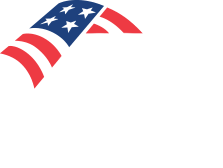Political Advocacy
Members – As you receive your ballots for the March primary election, here is a list of candidates supported by the ABC NorCal PAC. Your voice is your vote, please consider supporting candidates in your region who will promote fair and open competition in the construction industry in California.
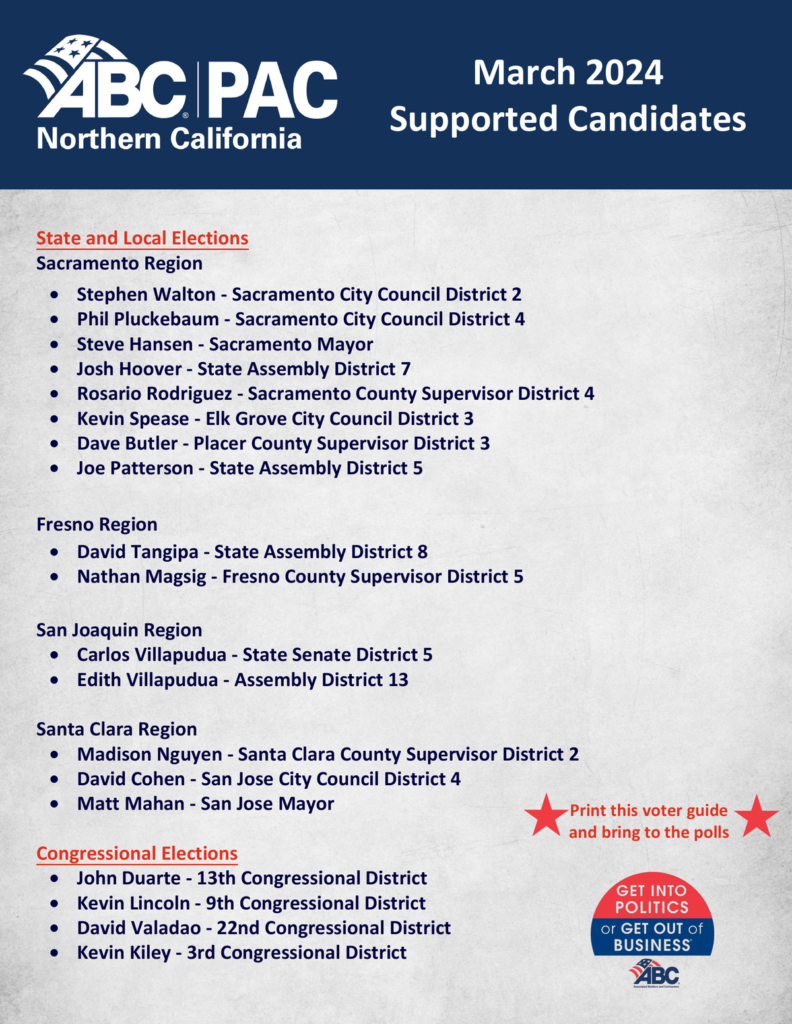
- Election Date: March 5, 2024 7:00am – 8:00pm
- Voter Registration: Online or Postmark by February 20, 2024
- Vote-by-Mail Ballot Request: Must arrive by February 27, 2024
- Personally delivered ballots: Must be delivered by close of polls on March 5, 2024
- Mailed ballots: Must be postmarked on or before March 5, 2024, and received by your county elections office no later than March 12, 2024.
WHAT DOES THE ABC NORCAL ADVOCACY TEAM DO?
- Represent members, workers, apprentices and the merit shop philosophy at local legislative meetings, hearings, press conferences and other forums
- Educate the community about local legislation, candidates and elections
- Ignite grassroots efforts (letter campaigns, phone calls, legislative visits) to support critical issues
- Political fundraising to support construction-friendly candidates and legislation
WHERE DO YOU COME IN?
As a constituent, you have a vital role to play in the legislative process. When you take the time to write, call or visit representatives in-person, they listen and take what you say into consideration.
Your story CAN change their view on the issues that affect you, your employees and your community.
Adopt your state legislators today – Find Your Rep.
OPEN COMPETITION
WHY IS OPEN COMPETITION IN CONSTRUCTION SO IMPORTANT
An unrestricted competitive bidding process levels the playing field. Everyone has equal opportunity to bid on work.
With open competition, costs go down and quality goes up. Taxpayer funds are used efficiently and money is invested back into the community.
As a result, community prosperity increases.
Work also stays local with open competition. Restricted competition narrows the field and supports the minority. The numbers don’t add up so jobs
go to folks outside of the community.
Studies and real-life examples show that construction projects that don’t have an open competition bidding process are more costly. See PLA studies here.
Here’s a recent example.
On March 5, 2018, the Selma City Council approved a Community Workforce Agreement between the City and Building Council and Construction Trades Council and Unions Requiring the Agreement to be Bound as a Condition to Consideration of Bids for Award of Construction Contract for the Police Station Project.
On August 30, 2018, the City of Selma received one bid from Seals Construction for $7,952,000 far exceeding the construction estimate for hard costs of $6,000,000.
On September 4, 2018, the City of Selma rejected the bid and authorized City Staff to revise the project and return to the City Council with a revised scope and estimated cost.
On September 26, 2018, the Selma City Council learned from Chuck Riojas Secretary-Treasurer of the Fresno, Madera, Tulare, Kings County Building and Construction Trades Council that there will be no compromise on adjusting the apprentice language in the CWTA/PLA to include merit shop apprentices. It is highly unlikely that any changes to the existing CWTA/PLA requested numerous times by the contracting community will be allowed.
On January 22, 2019, the City Council directed Staff to rebid the Police Station Project (the “Project”) with six alternates i.e., enhanced features/improvements, and to seek additional funding sources for the estimated increase in construction costs with the original unchanged CWTA/PLA.
Vanir Construction, the City’s construction manager for the Project, estimated that the total cost for the rebid would be between three and ten percent above the original estimate. This equated to between $238,560 and $795,200, for an estimated Project cost of between $8,190,560 to $8,747,200. Total Project costs would range between $9,277,350 and $9,878,496, which is between $2,009,964 and $2,611,125 more than what is available to cover the costs for the Project. Read the staff report here.
The proposal was rebid on March 14th, and the city received again one bid for $8,601,085 and awarded the contract using precious ambulance funds to cover the shortfall.
PHOTO GALLERY
ABC NorCal Goodwill Program
Associated Builders and Contractors Northern California (ABC NorCal) has joined Goodwill of Silicon Valley to assist with the newly formed Work Experience Program (WEX) by providing training staff for the electrical and construction sessions. This program was developed in summer 2020 in a response to the rise in job loss due to the COVID-19 pandemic. WEX is funded by the CARES Act and provides training in high-demand industries such as electrical, construction, HVAC, medical assistant, and others.
Pictured below is San Jose Mayor Sam Liccardo talking to the students about their life changing experience. View press release.
San Jose Mayor Sam Liccardo speaks about the the Goodwill pre-apprenticeship program during the State of the City address.
SUCCESS STORIES

PLA Defeated on $129M High School at Central USD

PLA defeated on Statewide Prison Construction – Our voices, together, matter!
WHAT IS A PROJECT LABOR AGREEMENT (PLA)?
Furthermore, studies show these types of agreements increase project costs – anywhere from 10-30% because they restrict competition. Open competition is healthy and increases quality. It levels the playing field and local money is invested into the community.
And finally, project labor agreements exclude the men, women, and veterans who have chosen to enter into state approved, unilateral apprenticeship training programs in pursuit of a construction career from the opportunity to work and gain the invaluable on-the-job training experience that provides stability for them, their family and their community.
Fast Facts
- 84.1% of California’s construction workforce does not belong to a union. So when a PLA mandates that all workers be hired through a union hall, there’s a very good chance that the project is not going to employ a local workforce.
- An exclusionary labor agreement that discourages the vast majority of local contractors and small business owners from competing on and winning construction projects.
- Introduced as a tool to local school, city, county, state and federal officials by State and Local Building and Construction Trades Council Representatives
- PLAs restrict competition. Less competition means higher costs. When the project in question is a public works project, the funding comes from local taxpayers. So ultimately you and your neighbors are the ones paying for unnecessary and inflated construction costs.
- Restrictions on the use of a core workforce (those current employees of the selected contractor). This only applies to non-union contractors.
- Restrictions on the use of state-approved apprentices. Under a PLA, all apprentices must come from state-approved union programs. So young and emerging professionals training with a state-approved merit shop program (like ABC NorCal’s), cannot be employed.
- Requirements that all pension payments be made to the union program – even if the worker will never qualify for a pension. Worker makes less money on paycheck.
- Requirements that a worker who has never made a decision to join a union – pay union dues and fees.
- Requirements that health benefits be obtained from union health programs – even if their employer provides comparable health care.
WHAT IS THE ABC NORCAL PAC?
The ABC NorCal Political Action Committee (PAC) is a group of members who donate funds to help elect state and local pro-merit shop candidates that uphold fair and open competition. ABC NorCal PAC funds also:
- Nurture relationships with state and local elected officials and future merit-shop champions.
- Maintain political balance on local governing boards.
WHAT IS THE ABC NORCAL ISSUES PAC?
POSITION STATEMENT
In The Spotlight
- Napa County forgoes union-favored agreement for new jail construction
- Project Labor Agreements – Not What We Need, Not What We Deserve
- San Francisco Supervisors Should Not Bar Local Workers From Construction Projects
- Nicole Goehring on the impact of the San Jose citywide PLA
- The Truth About Project Labor Agreements
- Watchdog Group Accuses Mayor of Quid Pro Quo Deal with construction unions
- Contractors cry foul over labor agreement
- Full Coverage of Press Conference exposing Construction Unions
More Resources
- ABC.org
Check our national website - ShameOnUnionBanners.com
Learn more about “bannering”, an organized labor pressure tactic - The TruthAboutPLAs.com
Learn more about project labor agreements across the nation
RESEARCH
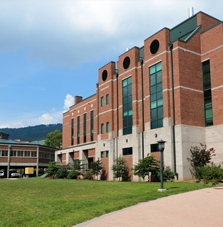
Measuring the costs of project labor agreements on CA schools
According to a study released by the National University System Institute for Policy Research, California school construction projects built using PLAs experienced increased costs of 13-15 percent, or $28.90 to $32.49 per square foot, compared to projects that did not use a PLA. More…
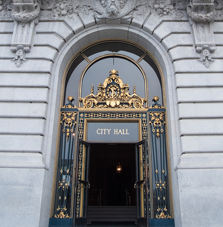
2012 Charter Cities Report
Compiled and presented by the California Construction Compliance Group. More…
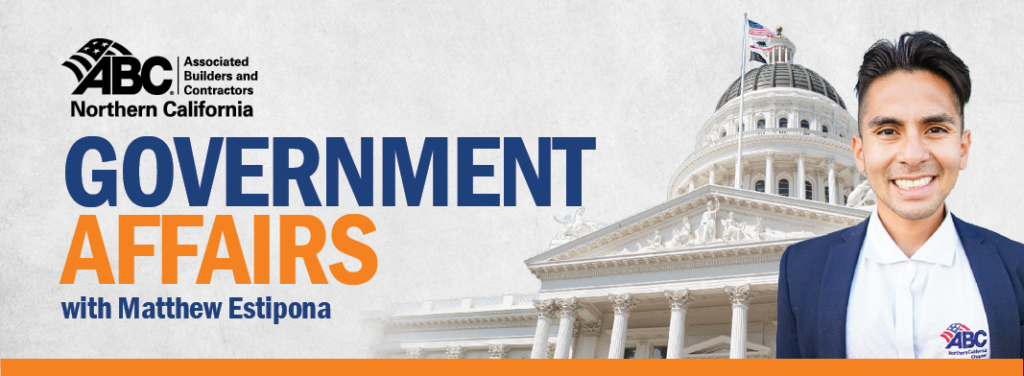
ABC Northern California is the voice for the construction industry.
- ABC NorCal’s Government Affairs team is advocating for our members at every level of government by speaking out against harmful laws and regulations that prohibit the growth and success of the construction industry and by promoting free market policies and championing candidates who share our views.
- The Chapter and our members are up against a well-funded and deeply entrenched establishment. Yet we, unabashedly, take your fight to Sacramento, your city hall, county seat, school board and Washington.
- We are battle-tested and strongly advocate for your right to continue to run your business the way you choose.
Submit your letter directly to their office or email Director of Government Affairs, Matthew Estipona.
WE WANT YOUR VOICE TO BE HEARD
Local Issues:
Project labor agreements (PLAs) discourage or prohibit merit shop contractors from competing for and winning construction project contracts. Construction contracts with PLAs are almost always awarded exclusively to unionized contractors and their all-union workforces. Less competition and inefficient union rules increase the cost of construction projects with PLAs.
85% of the California construction workforce does not belong to a union The most recent data from the U.S. Department of Labor’s Bureau of Labor Statistics cites that only 14 percent of the U.S. private construction workforce belongs to a union.
This means PLAs discriminate against more than eight out of 10 construction workers who would otherwise work on these construction projects.
PLAs typically include the following provisions that discourage merit shop contractors from working on PLA projects:
- Merit shop contractors must pay their workers’ health and retirement benefits to union trust funds even if they have their own benefit plans. They are in effect, paying twice – once to the union and once to the company plan. Unfortunately nonunion employees don’t benefit from these contributions unless they join the union and remain until vested.
- Apprentices must come from union apprenticeship programs; participants in federal and state-approved nonunion programs cannot work on the job.
- Most or all workers have to come from union hiring halls. In effect, a merit shop company has to has to exclude its hardworking employees and use unfamiliar union workers instead.
- Nonunion employees may have to pay union dues or join a union in order to work on a PLA project. PLAs restrict competition and therefore increase costs
By limiting bidders and applying restrictive work rules, PLAs unnecessarily drive up construction costs. Numerous academic studies of public construction projects subject to prevailing wage laws show that PLAs increase the construction costs between 12 percent and 18 percent when compared to similar projects without PLAs. PLAs shut out local workers PLAs claim to ensure the use of local workers, but the term “local” does not apply to local nonunion workers. In construction markets where the demand for union labor is greater than the supply, union workers from outside the local area are given preference over qualified local nonunion workers on PLA projects. Women and minority-owned businesses are also often excluded from PLAs simply because they are underrepresented in unions.
PLAs override employee rights Normally, employees can choose to join or not join a union through a card check process or a federally-supervised private ballot election. But PLAs are pre-hire agreements that take place before employees can vote on union representation. A PLA project requires unions to be the exclusive bargaining representative for workers during the life of the project. The National Labor Relations Act (NLRA) generally prohibits pre-hire agreements, but an exception in the law allows for these agreements only in the construction industry.
PLAs don’t ensure jobsite safety or timely project delivery The threat of labor strikes and unrest is a tactic often used to coerce construction users into requiring PLAs. But the fact remains that unions have engaged in strikes and labor disputes on PLA projects. Maury Baskin, ABC’s general council, documented numerous examples of government-mandated PLA construction projects riddled with dispute-related delays and labor compliance issues in his report “Government Mandated Project Labor Agreements: The Public Record of Poor Performance.” For more information about PLAs, visit thethruthaboutplas.com.
CEQA Abuse (aka Greenmail) In 1970, Governor Ronald Regan signed the California Environmental Act (CEQA) with the intent to “develop and maintain a high-quality environment now and in the future, and take all action necessary to protect, rehabilitate and enhance the environmental quality of the state.” The law states that “each public agency shall mitigate or avoid the significant effects on the environment of projects that it carries out or approves whenever it is feasible to do so.”
CEQA is one of the primary obstacles for private developers and public agencies looking to build in California. The problem is not so much complying with CEQA, but dealing with the many parties that exploit the law for ends unrelated to environmental protection. Labor unions have become notorious abusers of CEQA. Starting in the mid 1980’s, union officials realized they could use CEQA as leverage to win labor concessions from owners, developers and public agencies by delaying or blocking proposed projects using tactics such as massive data requests, complex objections to environmental impact reports and lawsuits.
Project labor agreements are a common objective sought by unions when they “discover” that a proposed project presents a threat to the environment. When a private developer or public agency becomes a party to a union labor agreement, all construction contractors must sign the agreement as a condition of work.
The contractor essentially becomes unionized while working on the project. ABC NorCal looks for opportunities to streamline local or state environmental laws to permit objections to those that have legitimate purposes. We will work with developers and owners to ensure CEQA abuse (aka greenmail) is exposed and doesn’t impede on important projects to help improve the economy and increase opportunities for all in California.





